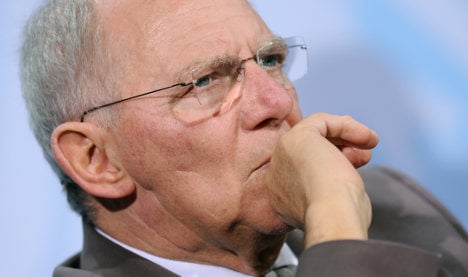“I am totally confident that colleagues in the Bundestag (lower house of parliament) see things like the German government (does),” Wolfgang Schäuble told Deutschlandfunk radio.
Asked whether a majority of lawmakers from the centre-right coalition government would vote in favour of the second aid package for debt-wracked Greece on February 27, he replied: “I am totally confident.”
Chancellor Angela Merkel has so far succeeded in garnering overwhelming support in Bundestag votes on eurozone bailout issues despite some opposition from within her conservative grouping.
In October, she won a comfortable majority in parliament for plans to boost the EU war chest to fight the crisis with the two main opposition parties also supporting the plan.
The Bundestag is due to vote on Monday on a deal, hammered out in the early hours of Tuesday in Brussels by eurozone finance ministers, for granting up to €130 billion in loans until 2014.
AFP/mry



 Please whitelist us to continue reading.
Please whitelist us to continue reading.
Member comments